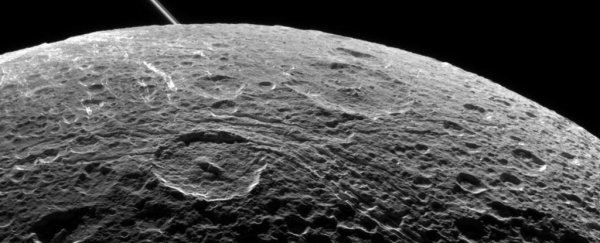Commercial space company Moon Express just became the first private organisation ever to get approval from the US federal government to land a spacecraft on the Moon, and it could happen as early as next year.
"With this landmark ruling, Moon Express has become the first private company approved to literally go out of this world as a pioneer of commercial space missions beyond Earth orbit," Moon Express said in a press statement.
The company, founded by billionaire entrepreneur Naveen Jain, computer scientist Barney Pell, and space futurist Bob Richards, will be the fourth entity in history to soft-land spacecraft on the Moon, after the US, Chinese, and USSR federal space agencies.
And, assuming they're successful, Moon Express will be the first privately funded entity to land on the Moon, which means if there's money to be made on the stuff they find up there, they're sure as hell going to mine it.
The fact that this the first time a commercial venture has been granted permission to leave Earth's orbit has made things mighty difficult for the regulatory bodies in charge of handing out such permissions, because there is no precedent here.
There technically isn't even a regulatory framework in place by which the US government can issue similar permissions to other companies in the future.
Instead, Moon Express has been granted a one-time exception to launch a commercial space mission beyond Earth, and if someone else comes forward with an equally viable proposal, well, the regulatory bodies will have to cross that bridge when they come to it.
"There are no new laws, no new regulations," Bob Richards from Moon Express told Loren Grush at The Verge. "We proposed a scenario where we would build on the existing payload review process."
The path to approval was actually so haphazard that Moon Express ended up getting legal approval to mine and profit off Moon minerals before it even had permission to go there, as Emily Calandrelli explains for Tech Crunch:
"[I]in November 2015, the Commercial Space Launch Competitiveness Act was passed, which explicitly stated that private companies are allowed full ownership of resources they extract in space. The bill made it legal for Moon Express to mine the Moon and keep what they extracted, but they still didn't have permission to travel to the Moon in the first place."
"Ironically you had a great 'space resources' act that says you can own what you get, but we're in a situation where you can't launch to go get it," Richards told The Verge.
It wasn't until April this year that the US State Department, the National Security Agency (NSA), and the Federal Aviation Administration (FAA), among other bodies, were actually ready to receive Moon Express's application to explore beyond Earth's orbit, and approval has now been granted.
The approval hinges on the fact that the US can guarantee any future missions won't violate the international Outer Space Treaty.
This means Moon Express had to show that it would be entirely transparent with the government about its movements to and on the Moon; wouldn't interfere with other space missions, spacecraft, or existing artefacts - "Don't do wheelies over Neil's footprint," joked Richards - and most importantly, won't contaminate another world.
Fortunately, unlike Mars, which still has the potential to host life, the Moon is as barren as it comes, so this isn't too serious a concern.
So now we wait, and hope that Moon Express can get to the Moon by its intended date. Because how freaking awesome is it that people with money want to spend it getting humans up and off this big blue marble and into our cosmic neighbourhood?
Hopefully the US government will be ready when the likes of SpaceX and Bigelow Aerospace come knocking with their applications to launch a Mars mission and space hotels.
Welcome to the next era of space exploration, everyone. Enjoy the ride.
